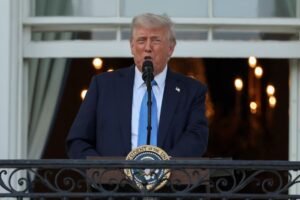The Community Court of Justice of the Economic Community of West African States (ECOWAS) has ruled that Kano State’s blasphemy laws violate international human rights obligations.
In the case filed by the Incorporated Trustees of Expression Now Human Rights Initiative against the Federal Republic of Nigeria (ECW/CCJ/APP/41/23), the regional court ruled that key provisions of Kano State’s Penal and Sharia Penal Codes were incompatible with Nigeria’s commitments under international and regional human rights frameworks.
The applicant claimed that the state’s blasphemy laws resulted in major abuses such as arbitrary arrests, extended incarceration, and, in certain cases, death sentences.
The group maintained that the execution of these prohibitions not only violated the right to free expression but also fostered vigilante violence, which frequently resulted in mob killings of suspected blasphemers.
According to a statement issued by the court on Friday, a three-member judicial panel comprised of the President of the Court, Justice Ricardo Gonçalves (Presiding Judge), Justice Sengu Koroma, and Justice Dupe Atoki, unanimously ruled that two provisions — Section 210 of the Kano State Penal Code and Section 382(b) of the Kano State Sharia Penal Code Law (2000) — violated the right to freedom of expression as guaranteed under Article 9(2) of the African Charter on Human and Peoples.
“Section 210 was criticised for its vagueness, as it fails to clearly define what constitutes an insult to religion, falling short of the legal clarity required under human rights law.
“Section 382(b), which prescribes the death penalty for insulting the Prophet Muhammad, was ruled excessive and disproportionate in a democratic society,” the statement added.
While the Court recognised states’ interest in ensuring public order and honouring religious sensibilities, it observed that such interests must be balanced against individuals’ fundamental rights, which Kano’s laws failed to do.
The Court, however, found insufficient evidence to support allegations that the Nigerian state failed to prevent mob violence in response to blasphemy accusations, noting that media reports alone did not meet the legal standard of proof.
The court ordered the Nigerian government to remove or change relevant articles and laws to comply with international norms.
“Accordingly, the Court declared that it has jurisdiction to hear the case;
“Declared the application admissible only as it concerns the right to freedom of expression;
“Declared that Section 210 of the Kano State Penal Code and Section 382(b) of the Kano State Sharia Penal Code Law (2000) are incompatible with Nigeria’s obligations to protect freedom of expression;
“Ordered the Federal Republic of Nigeria to repeal or amend the identified legal provisions and similar laws to align with Article 9(2) of the African Charter.”










